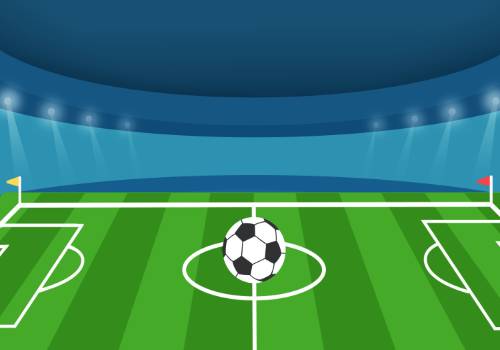南京江北新区投资集团拟发行10亿元中票 期限5年|世界今日报
本期债券注册金额为人民币20亿元,本期发行金额为10亿元,期限不超过5年。经联合资信评估股份有限公司评估,发行人主体信用等级为AAA,无债项
Transcript
Kim Mills From kindergarten to college, most students and teachers focus on mastering content, reading, writing, math, science, and history. But along the way, very few students are taught a crucial skill set. What exactly is the best way to learn Decades of research in psychology have found that some study techniques are far more effective than others, but the most effective teaching and learning methods are not always the most popular ones. So students end up wasting time and effort using study strategies that don't help them acquire new knowledge and get frustrated in the process.
Which study techniques do work and which ones don't Is it useful to take copious notes, to read every section of a textbook multiple times, to highlight key points on a page What about cramming Can students cram their way to an A And do the same study strategies work for everyone Or are there techniques that work well for some people and not for others What about those of us who are no longer in school Can the same learning skills help lifelong learners master knitting, learn to retile their bathroom, or acquire some other new knowledge or skill
 (资料图片仅供参考)
(资料图片仅供参考)
Welcome to Speaking of Psychology, the flagship podcast of the American Psychological Association that examines the links between psychological science and everyday life. I'm Kim Mills.
We have two guests today. They're the co-authors of a new book from APA called Study Like A Champ The Psychology-Based Guide to “Grade A” Study Habits, which will be published in January.
First is Dr. Regan Gurung, a professor and director of the general psychology program at Oregon State University. He studies social and health psychology, as well as the psychology of teaching and learning. He's the founding editor of APA’s journal Scholarship of Teaching and Learning in Psychology and is a past president of the Society for Teaching of Psychology, APA’s Division 2. Before moving to Oregon in 2019, he taught at the University of Wisconsin-Green Bay for 20 years.
Next is Dr. John Dunlosky, a professor of psychology and director of the Science of Learning and Education Center at Kent State University. Dr. Dunlosky's research focuses on discovering the techniques that students can use to improve their learning and achievement. He is author of more than 150 peer-reviewed journal articles and has written or edited eight books, including the most recent one from APA.
Thank you both for joining me today.
John Dunlosky, PhD It's a pleasure to be here.
Regan Gurung, PhD Absolutely.
Mills Let's start with the big picture. Why is it important to teach students how to learn rather than just teaching them content How much difference does it make in terms of what they can achieve
Gurung That's a great place to start, Kim, because when we think about teaching and learning and college, so often we focus on content and content delivery. And when I say we both, I think, parents, teachers, students, faculty. But the reality is to really get that content in and hang onto it for the long term, true learning, you've got to take a look at skills. You've got to take a look at techniques, and this is where the plot thickens because not every class is the same, not every discipline is the same. And so the more you learn those basic skills, the more you learn a wider array of skills and different tools, you can then use the best one for the best class to get the most long-term learning. So really, our thought was, yes, content is important, but without the right skills to get that content in, you are not going to remember it for a very long time.
And that truly was that inspiration for the two of us going. We do all this research on learning. There's all this research about in the lab, but one of the reasons I loved working with John on this is both of us not only do basic research in labs, but we also work in the classroom. And over the far too many years than we want to admit to, years of teaching, we've worked with just so many students and seen the problems that students have in the trenches as it were. And that's what this endeavor is all about. We've seen what happens in the classroom, we've seen where learning fails and let's put together those things that can really arm students to tackle whichever class they're in. And as you nicely alluded to in the intro, not just in the classroom, any time anybody wants to learn something, there are skills in here that can help you do it better.
Mills Dr. Dunlosky, let me ask you this. There are a lot of misconceptions and myths about learning and how to study. What are some of the big ones and what are the strategies that students are using that really aren't working very well for them
Dunlosky I think one of the biggest myths, and I really love this question because I think we all hold some of these myths in different contexts, is that if learning is difficult, then it must be bad. It's taking you in the wrong direction. And it just turns out that many techniques that one uses to learn effectively are going to actually produce difficulties or struggles in your learning. So to think that, “Well, if I'm really struggling at something, I must not be going about it the right way,” is kind of a myth because often if you're not struggling, you probably aren't making progress to your learning goal. It turns out that learning is just difficult. So to think that the only way it should happen is under easy contexts, and if it's difficult, I must not be good at this content—is a really horrible myth and I think it holds students back.
It's very relevant to your first question. When we see the student who's frustrated because they're struggling at a particular course, it's not because they don't have the ability to learn that content well and perform well. They're just not approaching it with the best strategies. Unfortunately, the misconceptions also work in the other direction, that some of the strategies that students use a lot that are easy to use actually lead to good learning, such as just rereading your textbook and so forth. It gives you the sense of familiarity so you feel good about it – “I know what this is all about.” But it turns out that something that's like reading or rereading, which is a bit more passive, it doesn't lead to those gains in performance that you might expect. It may make you feel good because this is familiar, it's easy to do, but sometimes the pathway to success, there's going to be some struggles in there and you should expect them and embrace them.
Mills So what are some of the techniques that do work What does the research say about the best way to learn something new and make it stick
Dunlosky Well, the good news is that there are a lot of strategies that are relatively effective. And what Regan and I tried to do was really pare down the field to just those most effective strategies that are cost free—any student can use these, they're inexpensive—but also going to have a relatively broad general impact on learning. And many of these strategies improve students' learning in two ways. They have a direct effect, so if you use them, it's going to boost your learning and maintenance and understanding of that content. The second is an indirect effect where if you use these strategies, and this is where the struggling comes in, it's going to allow you to detect when you don't understand something, which can be extremely frustrating. However, I'm saying that's an indirect effect of these strategies because students should want to know what they're struggling with so that they can readjust, get help with some of their friends from instructors and so forth.
So it's kind of to meet those learning struggles. My favorite technique actually is one of the easiest to use, and it's simply testing yourself or taking practice exams or practice retrieval. And the idea here is that when you try to practice retrieving something from memory, not simply just reading that content again, you get the both direct and indirect effects. If you can retrieve content accurately from memory, it turns out you get this wonderful boost in your long-term retention of that content. However, if you can't retrieve it yet or you struggle retrieving, it's a really good signal that you need to do more to learn that content. So here's a strategy that produces these inherent struggles that might be frustrating, but those frustrations then can lead to subsequent successes as students learn to hone in on what they're struggling with so they can bridge those difficulties. That's one of many strategies that we discuss in the book.
Mills Dr. Gurung, any others that you want to put out there
Gurung I'm glad John jumped in on that one because I was thinking, “Wow, there are so many we want to talk about.” There is another strategy, but I'm going to tease you or not even go to that strategy and say, even before we think about strategies, we've actually got to prepare for how we are going to learn. And I think something that we spend a lot of time on right up front, we start with some myths, but really the place we start is planning. Because in a large part of learning, and whether it's life in general or college, where the average student is taking five classes. That's a lot of content. That's a lot to learn. That's why one of the first things we say is you've got to make sure you have a good plan down, work out a good way to schedule when you're going to study, when you're going to learn. So even before we get to retrieval practice or testing yourself, make sure you have a good plan for when you're going to study.
When are you going to study what If you've got five classes, when in the week you study becomes really important. So I think planning is a very, very big part of learning that somehow falls off the radar when we think about strategy. So I want to make sure that it's upfront and good planning is really important. Right next to planning and even before we get to retrieval practice, I want to pick up on something that you said in your intro, which was the copious notes. Right there is when John and I look out at our classrooms, we shed this very early in the writing process. Something we noticed is that students aren't taking notes as much. And boy, whether it's you listening to a master class on cooking or taking an online class or sitting in one of our classes, note-taking is one of those hidden gems, where note-taking is a strategy in itself.
And I think we have to realize that the process of taking notes actually helps us organize out the material and is a tool in itself that is vastly underutilized. So my first big, I said we've got a plan, we've got to make sure we take good notes. And then I'm going to hand the pass over to John to go for the next big one, which is spacing and spacing out your studying.
John, there's the pass.
Dunlosky Thanks. It turns out that spacing your practice is very important strategy to use and note, this is actually an important misconception about spacing that many students hold, many instructors hold, is that spacing merely means that I'm going to study for a course on more than one occasion. That's a very good thing to do. It means you're just not cramming. But spacing means studying the same content in one or more sessions. So just not studying in one or more sessions. And note, once I say this, well you have to study in one or more sessions. It kind of ties that bow with what Regan was saying about planning. In order to use some of these strategies with fidelity, students need to manage their time that is set up multiple study sessions for each class prior to an exam to get ready for it.
Because if you just wait to cram the night before—which I'm not suggesting students don't do that, all students cram—just that you do more than that and you're going to have to plan and manage your time accordingly to take advantage of this really impactful strategy, which by the way, students use in every other context they learn in except for in educational context. It's a really effective strategy. We just forget about it when we start studying for our classes.
Mills So when you talk about spacing, is there some ideal How much do you space things out And I think you've also found interleaving is effective as well. Maybe you can explain what that means.
Dunlosky First, there's no definitive answer to how much you should space your practice. In fact, how much is going to depend on in kind of technical terms, the forgetting rate for the particular content because the idea is that you want to come back to that material right before you're going to forget it. And for different kinds of material, depending on your background, that interval might be different length. The good news is I don't think we have to have a definitive answer for students because often how much you want to space your practice is defined by your syllabus. You'll have so many exams over this space of a semester and you have three or four weeks to study for each exam. That's about how much time you have to prepare. So typically I recommend if students can study twice a week for a particular class, well, the spacing will be two or three days to space that practice out, which is pretty good.
I think if students would put on their schedules, “I'm going to study for each class twice a week and come back to the same material in every one of those sessions.” They'll see a really nice benefit to their performance because they're spacing their practice.
Now with respect to interleaving, that's kind of a complicated strategy and it means that you're going to study different content intermixed. And specifically it works well for content that you'd get confused about or that you would confuse with one another. So imagine studying for a math exam and you know you're going to be tested on a variety of different math problems, say different calculus problems where you have to differentiate equations and so forth. One of the difficulties of doing that, and there are many, of solving those kinds of problems, is just identifying exactly what kind of problem this is. Interleaving gives students the practice of comparing and contrasting different problems.
So the first thing they need to do is to identify what kind of problem is this and hence what solution should I have Typically, however, most students and most textbooks are set up in this way so that you practice the same kind of problem en masse. So when you go to the next one you know exactly what kind of problem it is, you're practicing just “can I apply the right solution” So interleaving actually helps students to mix up different problems so they can get better at identifying what kind of problem is this and then how should I solve it. Quite frankly, one of the biggest benefits of interleaving is that it forces students to space practice. Because by necessity, if you're interleaving different concepts and coming back to the old ones, you'll also have a lot of space to practice in your interleaved practice.
We talk a lot about the details about how to implement this in the book because they're a little bit more complicated than we can portray in the podcast. But all of these can be, again, easily used by students as long as they manage their time and plan for different study episodes for each class.
Mills Dr. Gurung, you were talking a little while ago about preparing, how it's important for a student to prepare to study. And I'm wondering, does it matter your surroundings, where you study And some people like to have music in the background, is that something that makes your studying more or less effective Does it vary from person to person
Gurung Distractions are something pretty big to focus on, and when we think about distractions, I wish it was only music. But for the average person, let alone the average student, there's a cell phone around. Maybe Instagram or Facebook if you're an oldie or Twitter or maybe Mastodon now. It's all these things all around, but very often people, I think, believe that music is good and soothing. And what's really interesting about especially music is that just the key thing for us to remember is anything that's using mental energy is taking energy away from what we're focusing on. That's something really at the basic core. If I am trying to read something, if there's a conversation around me, if there's music around me. If the TV is on and something is streaming, a part of my brain that would be paying attention to what I'm reading is now paying attention to some of those other facts.
When you think about it especially when we think about it from a neuroscience perspective and a cognitive neuroscience perspective. One way to think about it is to remember our working memory has a limited capacity. It's got a limited capacity and it's got a limited duration, which where we can store material. So our task is to take material from working memory and get it into long-term memory. And one of the best things we can do to help our brains move things from working memory to long-term memory is to pay attention and focus on what we're reading and doing. Because the more we focus on it, the better we can get things to long-term memory. Now mind you, retrieval practice is another one of those things that strengthens the memories in long-term memories and this all ties together. But going all the way back to your question, the setting in which you study can make the world of a difference.
And a nice bottom line is if you can cut down on distractions, the more you can focus on what you're studying, the more likely you are to pay attention to it. The deeper you are likely to process it, which in turn is related to longer term memory.
Mills Let's talk for a minute about something called learning styles. APA published a study last year challenging the belief among many, including educators, that learning styles are set at birth and that they predict academic and career success. Do either of you believe that people have an inherent learning style, whether that's auditory, visual, or tactile, and that it's necessary to teach to those styles
Dunlosky Based on all the evidence, Kim, my conclusion is that no, people do not have learning styles. They do have learning preferences and those I validate and respect. Some people like to see things visually, some people like to hear them, feel them, touch them, but those preferences don't translate into learning outcomes. And one simple example would be, is let's say you're an auditory learner and I'm teaching you, we'll go back to calculus. And I can either describe the equations in words to you because you're auditory or I can show you by drawing the equations up on the board. It doesn't take lots of thinking to realize that the most effective technique there for you, regardless of your preference, is to write this on the board because it would be very difficult to decipher all of that verbally.
It just turns out that some content is best taught and best learned using a particular modality, whether it's visual, auditory, maybe multiple modalities. But to think that its structure is going to benefit their students by figuring out what every style someone has and then teaching to that style is not only something that's probably not going to happen in the classroom effectively, but really shouldn't happen because it's not going to lead to better gains in learning. So that's my own perspective, but maybe Regan has got a different spin on all of this.
Gurung Well, I'm actually going to add to that and hone in on the instructor part because I think what's really important here is first off, the accumulated evidence that suggests that learning styles are more of the myth level. There was a great article that actually came out in 2007 by Pashler and colleagues that pretty much put the final nail, I think, in this notion that learning styles are important in the classroom. But I think what's often missed, and John alluded to those, but I really want to underscore it, is that the teacher matching a teaching style to a learning style has just not been found to be an effective way to go.
And in fact, I actually I did a study on this myself some years ago, where we published a study actually modifying teaching style for a learning style just to put it to the test. Absolutely no effects whatsoever. And the accumulated evidence goes even further to say that, are you ready for it Students actually benefit from instructors using different styles. So it's not just please teach me in my style. No, I'm actually going to learn better if my instructor is using multiple styles. And this is so important because I know John and I have both heard students say, “I don't like that class there. I'm such a visual learner, but they use some other style, I wish they used my style here.” The data says no, actually using different styles as an instructor is way better for you as a student and a learner than if we actually tried to match styles.
Mills So don't blame the instructor.
Gurung Don't blame the instructor. The data says multiple teaching styles are better. And this is so important because even though the data came out in '07, I've seen even recent surveys of particularly K through 12 instruction where this notion of learning style still persists. Been there, done that long time ago. Let's move on. Let's focus on things that actually help, like retrieval practice and spacing practice. That's our challenge is how do we help our students practice these skills, these techniques that will help them learn. That's the bigger challenge.
Mills Is there a difference between learning something that requires memorization, say spelling or the multiplication tables, and learning something that requires a deeper understanding of concepts or ideas Can the techniques that you're talking about help with both of those types of learning
Dunlosky I would say the answer is yes. Many of the general strategies certainly are set up in, many believe, promote memory and retention of the content. Something like retrieval practice, well you retrieve something from memory and you remember it better later on. The idea here though is that much of comprehension is, I don't want to say overrated or over touted, it's very important. But I think what happens is that memory is underrated. So for instance, how can I apply a concept that is comprehended and use it if I don't remember it So the idea here is the more we use these memorization strategies to learn difficult content that requires comprehension, the more we'll have that content available to us when we subsequently need to use it.
So are any of these strategies that we describe, are they the panacea of all learning so they could help you in all cases Absolutely not, but they help chip away not only at the retention component but also helping students understand. So yes, just using retrieval practice can promote both memory and retention. That said, it won't always promote the highest levels of comprehension. So students would need to do more, such as explain content to themselves. Say for instance, go to a lecture so they can hear the instructor explain the content and they can supplement this kind of instruction in trying to explain things to themselves or talk to their instructor with these other techniques to really solidify their understanding. Because not only can we forget our multiplication tables, but we can also forget our understanding of calculus. And that's why we have to go back and repeat practicing or solving of those problems to lead to long-term retention of understanding and comprehension. That's kind of my spin on it. These can help in all ways, but students are going to need multiple strategies to really master any particular content.
Gurung And again, maybe I can add a really pragmatic example. Take a classic example of flashcards, a lot of students, especially in large introductory classes, use flashcards. And the classic methodology of course is you have your term on one side and the definition on the other. Of course, more and more students are using it electronically, but the idea is the same. There's a term and you click something and it flashes to the definition. Now that sounds like memorization. And it is but it's also, as John said, really important. But here's where we talk about going further. So a really nice way to go, two simple steps beyond the classic flashcard. So if step one is turn on one side, textbook definition on the other, a really good second step is the student now writing the definition in their own words.
So they've got the textbook definition, now they're doing something with that material, writing it in their own words. There's a third step that really goes towards learning. So you've got the textbook definition, you've got the definition in your own words. Now, come up with an example and by that application, and that's when John was talking about going to a higher level of learning. By taking that simple basic flashcard and putting it into your own words and then coming up with an application, you are guaranteed to remember that concept better. And I say you’re guaranteed, because I've got data showing that this method, what we call the flashcard plus method, actually results in higher learning on quizzes than if you just use the standard flashcard method. And a big shout out to Drew Appleby, who first introduced me to this kind of idea, but we've tested it and sure enough it's doing something, going beyond the basics, that's important.
And I think far too often, I'm hoping John has a chance to talk a little bit about what I refer to as the classic Dunlosky et al. 2013 paper. But the reason I refer to it that way is John really said, “Look, here are these 10 things that students often do, but here's how they vary in their utility.” What I think is important here is most of us have an idea of what we need to do. Many of those things aren't necessarily the best way for learning. And I think that's why it's so nice to have research out there that says, “You know what, you may have thought highlighting is great. Yes, you've shown me your textbook with all the five colors highlighting. That may not”—and then that we see that often that's not necessarily the best way to learn.
Mills You've also talked about the importance of taking good notes and I believe you have found that there's a difference between whether you take notes by hand or on your laptop. What's happening in our brains if one is better than the other, and which is better
Dunlosky Actually, I've done quite a bit of research on this recently, Kim, so let me kind of jump in here. And the bottom line is that taken as a whole, the evidence indicates that neither pathway to taking notes is better than the other, whether you're longhand or typing. And I won't get into the nitty gritty of all of this because I want to point out something that I think is more important than whether you're using longhand or a computer. What I'd recommend is whatever students like the best and what they think is most effective for a particular class they go with. The little hidden secret of all the research on note-taking is called the control group. And the control group in these experiments, they sit and they just listen to a lecture, they don't take any notes. So now I'm going to compare students’ knowledge about that lecture, whether they've taken no notes, the control group, or whether they've taken notes longhand or with a computer.
And in many, many cases, none of those groups differ in how much they retain. That is, just sitting listening to a lecture, you're going to retain about as much as you do by taking notes. However, none of the groups retain that much at all. None of the groups retain that much. So this is the key. The group who doesn't take notes, well they're pretty much behind the eight ball now because they don't have anything to study, to prepare themselves for the exam. So when we talk about the importance of notes, you don't necessarily get a lot out of taking them. But what you need to do is have good complete notes because the real learning is going to happen after the fact and how you interact and study those notes moving forward.
So my recommendation, if you're in a class where a teacher talks really, really fast, well you might be better off with the computer because you can type fast. If you're in a class in mathematics where they're putting lots of equations on the board, probably a computer's not going to work well, you need to take long hand. So really, I think the jury is out about which is better. I would say neither is better. But really taking notes themselves, the magic happens after you get the good notes down, not while you're taking them.
Gurung And Kim, I think it's really important to remember when we are talking about notes, that there are three actual purposes to notes. Yes, it's recording what happened, but it's an opportunity to review what's going on and then an opportunity to revise. And I think we've actually dedicated an entire chapter to note-taking just because it's so important and so under used. One other thing to keep in mind when everybody thinks about laptop versus long hand, I think what many of those studies, John, and others have found is there is an important additional factor when we talk about a laptop versus longhand is that any device that enables you to be distracted by something else can be problematic. So you can be distracted if you are taking notes on a laptop and then you go to another tab and check your messages. Or you can be distracted if you're writing notes longhand and your phone notifies you and you decided to divide your attention and look at it.
That's really what's seeming to be that, there's that collateral damage there of laptops make it more likely to switch tabs and be distracted, which I think contributes in a long, long way to them being problematic with note-taking. So focus, cut down on those distractions. You see, that's a theme we keep coming back to, but boy, no matter what you're trying to learn, cutting down on these distractions is better.
Mills What about cramming Every college student does it—you got a test tomorrow, oh my God, you're panicking and you're going to stay up all night and you're really just going to slam it. Does it work Does it get you maybe an A on the test But then what happens long-term
Dunlosky I'm going to touch on just the knowledge component and I'll let Regan talk about how it disrupts sleep and performance and all that kind of thing. Certainly, depending on how difficult the test is, you can cram and get an A in your class, and I want all students out there to know that often, that's fine. You don't have to remember everything that you do in college, that's okay.
But if you really want to know something well, really want to retain it, say it's part of a major or you're going to need this content for a subsequent advanced course, cramming likely will fail you. Because what happens is you'll learn it kind of just well enough to recognize and pass that performance threshold for that exam, but then you'll quickly forget that knowledge that you learn, so it won't be readily available when you take that advanced class.
It'll be more difficult to relearn and so forth. So that's why using these other strategies, like spacing practice, can benefit you in the long-term because you'll retain that knowledge longer. I still encourage my students because I know it makes them comfortable to study the night before, but if they've used these other techniques, spacing, retrieval practice and so forth, getting ready, then that study session the night before will be an anxiety reducer because they'll realize they know the content well and that they're ready to go. But cramming the whole night, pulling an all-nighter, I think that's a horrible idea. I don't know, Regan probably always did it when he was in college, but I certainly never did. I don't know. What do you think, Regan
Gurung I like the rule that you tied in sleep in there because I think sleep is a pretty big deal and I think there are a lot of techniques that are not so much techniques but life habits. And we spend the entire last chapter actually talking about eating and physical activity and sleep but particularly in the context of cramming. I think the big part here to keep in mind is if that night before is your first dedicated attention to the material, you do fine the next day, but that is going to erode and fade very, very quickly. And as long as you have the spacing in there, absolutely you're going to feel better studying some the night before. But I think it's how much sleep you get also makes a difference. One of the big reasons that there are many, many reasons to sleep a lot.
There are a lot of functions of sleep that are important, but one of the most important to, I think, in this conversation is sleep is a time when memory consolidation takes place. There's actual, and not just memory consolidation, but studies show that even problem solving is enhanced by sleep. You actually benefit by struggling on a problem, stopping and going to bed, rather then staying up until solved it. And what I mean actually benefit, there are some great experiments that literally have people work on a puzzle, then go to bed and lo and behold those waking up, they actually come up with a solution that they didn't have when they went to bed. So I think sleep before an exam is really important. I also want to say it's not just before an exam. More recent work on sleep shows that it's not just the day before an event that's important, but the accumulated sleep that you get up to a week before an important exam or an important performance thing.
And this is stuff that just came out earlier this year, it's that accumulated sleep. Because I've heard students say, “Oh no, don't worry, Dr. Gurung. I'll make sure I get enough sleep the night before.” And I say, “It's not just the night before, it's a few days coming up.” But that's the thing is, the bad news is students cram and they go, “Oh, I did well the next day.” And if that particular class doesn't have a cumulative final or a cumulative kind of test, they're not likely to realize that cramming didn't serve them well. But particularly for those of our listeners who are no longer taking classes, this is even more important. Because you want to spread it out, you want to space it, you want to practice retrieval because we want to remember this for the rest of our lives, or at least for a long time. And cramming will definitely not get you that.
Mills So I want to ask where the teaching of critical thinking figures into your work. Are there methods that can help people do better at this I'm asking that question in light of all the mis and disinformation that we're being bombarded with right now. Are some of the techniques that you talk about helpful in teaching students how to discern between things that are real and things that are fake
Gurung I think the place that it comes in when I, A, think about the book and, B, think about studying and study techniques in general, is when we talk about deep processing. When we set the stage in the first chapter, we talk about the importance of deeper processing. And very often even when it comes to memory, questioning material leads to deeper processing. So for example, in cognitive science, we often talk about shallow processing versus deep processing. The example here is if I ask you to memorize a list of words and you just think about does it have the letter E in it or the letter S in it Well, that's a very quick decision. Later on when I ask you to remember the words, you're not really going to remember them. On the other hand, if I ask you, when I read you a list of words, is this word a good word or a bad word
Automatically, you're doing more work with it and lo and behold, you tend to remember more of the words that you've examined more deeply. Along those lines, when we actually critically think about words or information, that extra work that we do ongoing, wait, does this map onto my previous knowledge And previous knowledge is very important with learning. As an instructor, as a teacher, us knowing what that student already knows. As an adult learner, being aware of our experiences and our history, becomes really important in how we face new information. And I think it's in those contexts more indirectly that we talk about critical thinking.
Mills Let me close by asking you this question. Where do you think there are still knowledge gaps in understanding the best ways to teach What are you looking at going forward for the second edition of your book
Dunlosky We have a lot of knowledge about what works best, from personal hygiene. Like brushing your teeth is a good idea, flossing is a great idea. Using retrieval practice and success of relearning, great idea. However, most of us know that flossing is wonderful and even understand the mechanisms. How many of us really regularly floss And the question is now that we have all this wonderful knowledge about how to live healthier lives, how to become a better student. How do we motivate students How do we motivate ourselves to use these best practices So as much as I believe myself that goal setting, planning and time management are tools for motivation. I wish we had a chapter in there that describe, look, these are tried and true techniques to help you motivate yourself to do the best things in the long run. And I know there're some techniques students can use, but I know we need a lot moving in that direction to really develop really foolproof ways for motivation. That would be my addition to the book.
Mills Dr. Gurung, what about you
Gurung I actually think about—and motivation's great. We touch on motivation, we touch on getting social support and help when you need it because that's really important. That's definitely something that can be expanded on. But when I think about what's really needed here, I'm reminded of all the instructors, all the thousands and thousands of instructors working so hard who don't know, or were never trained in cognitive science or teaching for that matter. And here I'm talking about higher education. Most of us in higher education with PhDs didn't necessarily go have a teaching program. There were some great grad programs that did, but many teaching programs didn't. That's why APA's division on the Society for the Teaching of Psychology is such a great resource. But when I think about next edition of the book, I actually think of a complement to the book.
And, John, I think it’s the first time you've heard of this, but next to study like a champion, I think we need “teach like a champion” and where—we really address this book to students, so we've taken out as much of the jargon as possible. We've put in really pragmatic tips, but it's aimed at the student and I hope many faculty sneak a copy in and get their training done pretty quickly. But I really see writing one completely directed at faculty where we can help them anticipate the problems that students have and help them solve it.
Mills Well, this has been really interesting. I very much appreciate you both joining me today. Thank you so much.
Dunlosky Thanks for having us.
Gurung Thanks so much, Kim.
Mills For those of you who are interested in getting a copy of Study Like A Champ The Psychology-Based Guide to “Grade A” Study Habits, you can order it on APA’s website. Go to www.apa.org and click on publications and databases to get to our book section or look for directions in our podcast notes. You can find previous episodes of Speaking of Psychology on our website at www.speakingofpsychology.org or on Apple, Spotify, or wherever you get your podcasts. If you have comments or ideas for future podcasts, you can email us at speakingofpsychology@apa.org. Speaking of Psychology is produced by Lea Winerman. Our sound editor is Chris Condayan.
Thank you for listening. For the American Psychological Association, I'm Kim Mills.
关键词:

本期债券注册金额为人民币20亿元,本期发行金额为10亿元,期限不超过5年。经联合资信评估股份有限公司评估,发行人主体信用等级为AAA,无债项

今天有一个我们所熟悉的品种,居然敢逆风涨停板,大家可以好好琢磨一下,可能有些情况被掩盖了,我们明天再来看,如果再来两个涨停板,可能背

中国网地产讯3月28日,绍兴柯桥区1宗地块成功出让,经过110轮竞价,绍兴市欣明置业有限公司、绍兴市骐宁贸易有限公司(欣明置业和骐宁贸易)以

截至2023年3月28日收盘,信德新材(301349)报收于92 45元,下跌1 95%,换手率2 86%,成交量4870 0手,成交额4538 04万元。

一年之计在于春,发展之计在于拼。今年年初以来,安阳市北关区中原高新技术产业开发区(以下简称开发区)继续通过工业项目发力,为全区乃至安

国家植物园桃花观赏季节是几月?答:国家植物园拥有世界上观赏桃品种最多的桃花专类园,集中展示了包括植物园拥有自主知识产权的品虹、品霞等近

关注|问题企业恶意注销企图金蝉脱壳,没门!

交银国际发布研究报告称,维持中国太保(02601)“买入”评级,预计随着疫情影响减弱和经济复苏态势,寿险转型成效将更加显著,在低基数上负债

各省癌症高发地图公布,河南这五种癌多警惕,肺癌,胃癌,肝癌,乳腺癌,食管癌,恶性肿瘤,癌症患者

温柔体贴、事业有成的未婚夫,订婚后提出共同购买婚房,允诺美好的未来,实际却拥有两副面孔,欺骗着身边人……近日,虹口警方成功侦破一起诈

智通财经APP讯,洲际船务发布公告,发售价厘定为每股发售股份3 27港元,按发售价每股发售股份3 27港元计算,公司将收取的全球发售所得款项净额

1、打开华为手机,找到实用工具,如下图。2、点击实用工具找到学生模式,如下图所示。3、点击学生模式进入如下所示页面,如下

理性讨论,大学生联队配2个外援参加CBA,能进季后赛吗?,cba,大学生,本土球员,阿隆·布鲁克斯

同花顺金融研究中心3月27日讯,有投资者向沃森生物提问,请问RQ3013正式三期临床招募了多少人?为何临床注册网站找不到三期实验方案? 公司

二月二龙抬头是生活中比较特殊的一个日子,在这一天会有很多的习俗和讲究,很多人都会在这一天办大事,但是根据黄历显示,2023年二月二龙抬头

3月27日,中国足协通过官方渠道公布了“中国足球协会关于做好2023年职业俱乐部各级梯队联赛参赛工作的通知”,确认中足联

美国民众在硅谷银行外排长队取款。(资料图)美媒《华尔街日报》26日刊发题为《美国银行倒闭给全球增长带来风险》的文章,批评

上海:今年房地产开发投资增幅力争在5%左右,预计5230亿元市场 2023-03-2715:18:37 来源:中国房地产网扫描二维码分享

中国人民银行授权中国外汇交易中心公布,3月27日人民币对美元中间价报6 8714,调贬340个基点。(中新财经)图自中国外汇交易中心网站。

1、都说左旋肉碱有助减肥。2、我来告诉你真相。本文到此分享完毕,希望对大家有所帮助。

最好不要最好不要将腊肉放在外面过夜。首先是会外面露水重,腊肉容易受潮,影响晾晒效果。一般来说,腊肉在晒干之前需要先腌制,最好的腌制时间是2

缩量上涨意味着股价与成交量背离,通常是非正常现象,说明没有场外资金介入,只是场内资金在博弈,投资者买入意愿不高,最终空方力量将会战胜

民警对驾乘人员进行了严肃的批评教育,告知货车超员和违法载人的危害及后果,责令石某将违法搭载的人员进行转运,并依法对其进行处罚

本报讯(记者陈慧慧通讯员罗立满)3月23日,2023年“春暖漳州”高校毕业生就业服务专场招聘活动闽南师范大学专场在该校弦歌广场举办。本次双选

前三九六东周安王姬骄,年龄不详赵武侯【名不详】,年龄不详晋烈公姬止,年龄不详宋悼公宋购由,年龄不详鲁穆公姬显,年龄不详燕僖公姬载,年